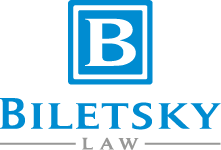Terms and Conditions
 Although you may not be aware of it at the time, by visiting or using many websites and applications you may be agreeing to specific terms and conditions set by the website or application that you are using. These agreements may have different names such as Terms of Use, Terms and Conditions, Code of Conduct, User Agreement, and so on. Despite the different names, each of these agreements are meant to set the conditions for your use of the service and to also provide the owner with protection from liability.
Although you may not be aware of it at the time, by visiting or using many websites and applications you may be agreeing to specific terms and conditions set by the website or application that you are using. These agreements may have different names such as Terms of Use, Terms and Conditions, Code of Conduct, User Agreement, and so on. Despite the different names, each of these agreements are meant to set the conditions for your use of the service and to also provide the owner with protection from liability.
So what’s in these agreements? Besides the names of these contracts, these agreements come in many different variations of length and complexity. Generally speaking, the more interactive the website or application is, the more terms that will be contained within the agreement. Also, what type of content the website or application hosts heavily influences the terms that will be in the agreement.
Keep in mind while reading these sections that the purpose or content of the provisions in these agreements are usually written to completely prevent any kind of liability on the owners part. In some cases, these agreements can be so over broad that they may end up being unenforceable. Regardless of the validity or enforceability of these provisions, some basically throw in the kitchen sink hoping that the agreement will be enforceable.
Introducing the Parties
Often, these agreements start out by defining who you are and who they are. Some of these agreements will use “We” and “You” while others will use more formal language such as “User” and “Company.” Regardless of the way that they state the party names, they are separating themselves from the rest of the world and considering anyone who uses or accesses the website or application to be considered the other party.
Also, there are certain services where access is based on a subscription. For these websites or applications, a further distinction between the mere user and a member may also be brought up.
What You Can’t Do
Another provision of these agreements limit what you are allowed to do on the website or application. These lists can go on for pages and include everything from refraining from posting malicious or illegal content to prohibiting hacking, spamming, soliciting, and other actions. These provisions help the owners to have the argument that regardless of the kind of content that you posted, they had previously prohibited such content and should therefore not be held liable.
Disclaimers
A section that could go on for pages are the “Disclaimers” sections. Depending on the use of the service, these disclaimers attempt to reduce or eliminate the owner’s liability for pretty much everything. Some provisions will disclaim any kind of “warranty” that the product or service may come with while other provisions limit what type of remedies you may be entitled to.
Further Protection from Liability
Depending on what type of product or service the website or application is offering, users may have the ability to post any type of content. This can pose a major problem for these websites as everything from stolen property, defamation, child pornography, and malicious content could be posted.
When the laws and regulations surrounding the internet were first evolving, certain laws such as Section 230 of the Communications Decency Act of 1996 were passed which aimed to protect certain service providers from liability. In order for these kinds of services to be able to be protected, service providers must meet certain requirements. Some of these requirements allow the owners of certain content to be able to contact the owner in order to remove content that is being used without permission or that which is offensive.
And More Boilerplate
These types of agreements can sometimes be filled with endless legal jargon and repetitive clauses meant to ensure that the owners are protected. While at first glance these agreements may seem to limit any hope you have of getting out of the agreement, that may not be the case. Although within the mountains of boilerplate there may be “severability clauses” which allow the rest of the agreement to be enforceable if something is found to be invalid, the terms which are often found to be invalid are usually the most one-sided ones.
For more information on Terms and Conditions documents or to have one prepared for your website or application, contact Biletsky Law.








